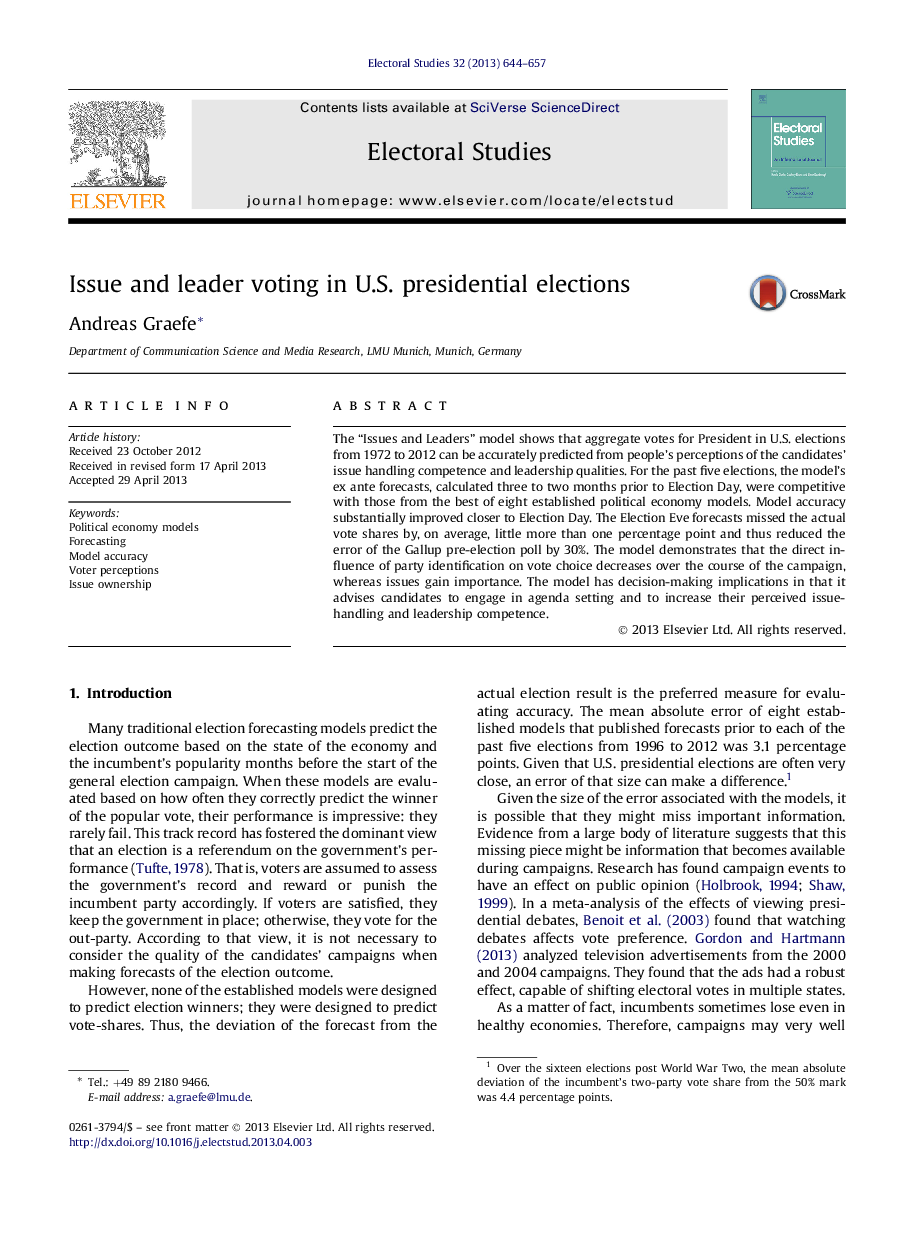| Article ID | Journal | Published Year | Pages | File Type |
|---|---|---|---|---|
| 1051741 | Electoral Studies | 2013 | 14 Pages |
•Candidates’ issue and leadership competence predict US presidential election outcomes.•The model’s accuracy matches traditional models that provide long-term forecasts.•The model provides more accurate short-term forecasts than the Gallup pre-election poll.•The importance of issues for aggregate vote choice increases towards Election Day.•The model can be utilized as a decision-making aid to campaign strategists.
The “Issues and Leaders” model shows that aggregate votes for President in U.S. elections from 1972 to 2012 can be accurately predicted from people's perceptions of the candidates' issue handling competence and leadership qualities. For the past five elections, the model's ex ante forecasts, calculated three to two months prior to Election Day, were competitive with those from the best of eight established political economy models. Model accuracy substantially improved closer to Election Day. The Election Eve forecasts missed the actual vote shares by, on average, little more than one percentage point and thus reduced the error of the Gallup pre-election poll by 30%. The model demonstrates that the direct influence of party identification on vote choice decreases over the course of the campaign, whereas issues gain importance. The model has decision-making implications in that it advises candidates to engage in agenda setting and to increase their perceived issue-handling and leadership competence.
